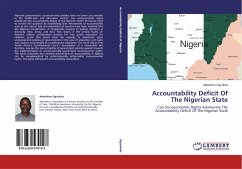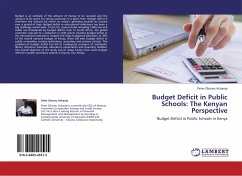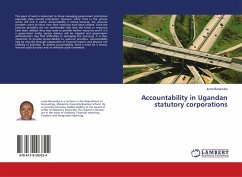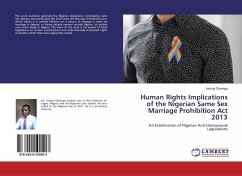
Accountability Deficit Of The Nigerian State
Can Socioeconomic Rights Ameliorate The Accountability Deficit Of The Nigerian State
Versandkostenfrei!
Versandfertig in 6-10 Tagen
55,99 €
inkl. MwSt.

PAYBACK Punkte
28 °P sammeln!
Nigerian government's socioeconomic policies have not been accountable in the health-care and education sectors. Can socioeconomic rights ameliorate the accountability deficit of the Nigerian State? This book tried to answer the question by establishing that mechanisms of accountability such as the rule of law and separation of powers have been enacted into the Nigerian Constitution. A comparative analysis of judicial decisions in Kentucky, New Jersey, and New York States in the United States of America, whose constitutions provide for free public education for children, prove that courts have...
Nigerian government's socioeconomic policies have not been accountable in the health-care and education sectors. Can socioeconomic rights ameliorate the accountability deficit of the Nigerian State? This book tried to answer the question by establishing that mechanisms of accountability such as the rule of law and separation of powers have been enacted into the Nigerian Constitution. A comparative analysis of judicial decisions in Kentucky, New Jersey, and New York States in the United States of America, whose constitutions provide for free public education for children, prove that courts have the capacity to adjudicate upon socioeconomic policies of governments in the area of education and make such policies accountable to constitutional mandates. The book shows that South Africa's Constitutional Court's formulation of a reasonable test doctrine, assures the accountability of government policies geared towards the implementation of constitutionally guaranteed socioeconomic rights. The book concludes that existing mechanisms of accountability in Nigeria can be complemented by constitutionally enforceable socioeconomic rights. This book will benefit accountability researchers.












